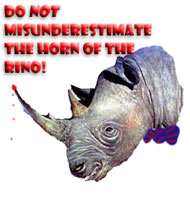June 02, 2005
Gratuitous Musickal Posting (TM)
Lynn S. at Reflections in D Minor got an interesting Google search that prompted her to some reflections on the difficulty of describing "what is going on" in Mozart's Piano Concerto No. 20 in D Minor, K. 466.
As it happens, this is one of my favorite pieces of music, but I too would be hard pressed to put in words what I hear going on in it. Yes, it would be possible to give an academic description of the mechanics of the piece - the structure, the themes, the key modulations and so forth, but that's not the same thing at all.
I got thinking about this sort of thing the other day as I was painting the basement because I happened to be running through the Beethoven symphony cycle and had just got to the "thunderstorm" movement of Symphony No. 6 (the "Pastoral"), when the eldest Llama-ette wandered in. She recognized the piece and insisted that I play the movement a couple of times. As I did, she was very keen to identify exactly what was going on - which bits represented rain, lightning, thunder, wind and so forth.
This is all well and good for beginners up to a point. There is nothing wrong with listening for Death's violin in Saint-Saens Dance Macabre, or all the various character themes in Peter and the Wolf, for example. But I think, if too much emphasis is placed on this kind of programatic treatment, there is a danger of missing the real point. Classical music, for the most part, is not a representational art form. Rather, it is abstract. The purpose of listening to it is not to paint pictures in your mind of some thing or place, but to simply listen to the music for its own sake.
So where does one start? I think Lynn is on to the correct answer: But if [a searcher] listens and listens again and again, giving it his full attention, he will someday understand, with his heart and soul, what is going on.
In other words, take a piece of music and listen to it repeatedly until you know what the notes are. Once you know the piece in that sense, you will be able to begin to understand what is going on behind the notes. And once you master one piece of music, you'll have a point of reference, a marker from which you can start charting other pieces and gradually building up an greater appreciation of the art as a whole. Like Lynn and me, you may never get to the point where you can articulate this understanding in any coherent way, but you will know, and enjoy, what it means.
UPDATE: Okay, I confess this didn't come out very clearly. If you chip a couple o' bucks into the Llama tip jar, perhaps I might expand on the idea in a future post. If you chip in a couple more bucks, perhaps I won't.
Posted by Robert at June 2, 2005 09:42 AM
This is a very fine articulation of why it's near nigh impossible to articulate the whys and hows of music. (And also why repetitive listening to great music isn't merely obsessive or ritualistic--although it can be that too--but lets you "hear" more each time than you did before.) I'm often left dissatisfied with verbiage about musical works (whether in liner notes or in a musicological treatise) unless I'm already familiar with the piece, and even then the verbal description might do a decent job of illuminating an aspect or two of the work in an interesting way, but can never supplant the real thing.
Posted by: Chan S. at June 2, 2005 10:38 AMWow, a reverse bleg. Subtle. :-)
Posted by: The Colossus at June 2, 2005 11:04 AMAs a kid (an almost inconceivably dorky kid, I might add), nearly every piece of classical music that I listened to was romantic and representational--Danse Macabre, the 1812 Overture, Pictures at an Exhibition, the Moldau. My tastes these days are very different, but the representational, narrative aspect of some classical music does seem to provide a friendly introduction to the art form for novices.
Posted by: utron at June 2, 2005 11:12 AMSo ... much .. pretention ... it's ... killing ...
Posted by: Bill from INDC at June 2, 2005 11:44 AMChan - too kind!
Colossus - yeah, I figure I can't lose!
Utron - I agree with you about the uses of programatic music as an introduction to the form. All I'm saying is that if a person never gets beyond that, they're missing out.
Bill - Care for some brie?
Posted by: Robert the LB at June 2, 2005 11:49 AMrobert the lb, spot on, even if i am your mom. only point of not quite agreeing is abt the benefit of using program music for beginners. i was myself the victim of just such a kindly-meant system presented in my grammar school days by the cleveland orchestra in its glory years, and i would estimate it set me back about 20 years in my ability (limited, granted) to appreciate and 'understand' serious music. could NOT get it out of my head that there WAS NO story--no swan on the moonlit lake--in a mozart symphony,e.g. (actually got my start decades later by listening obsessively to 'la ci darem la mano.' of course there IS a story there, but i was listening to it because i had a bit of a crush on the basso, cesare siepe--mmmmm, cesare.) also most program music is not of the first rank, and it takes quite a little musical sophistication to be able to appreciate whatever merit there may be in it, IMHO. start out with the best, is my motto. you don't have quite to get it to appreciate the um,
sensual beauty, some part of whch will eventually snag your attention and get you listening obsessively,and there you are. worked for me, anyway.
does anyone else loathe those program notes that read like a soap opera script--where first the violins are always asking plangent questions and the cellos tenderly answering them, while the oboe cynically suggests that---well, you get the idea.
i d cent bill--when you're finished with the brie,
please write 'PRETENSION' correctly 25 times on the blackboard.
Speaking of searches for stuff in D minor...
I was looking for Bach's (I think it is Bach's) Toccata in D Minor (I like the whole "Halloween music" genre) on Dogpile.com's audio search. It gave me some crap about possibly leading to adult sites (!), even though it was a bloody AUDIO SEARCH! Thought it might have something to do with "minor" (would have hoped not, though!), but just searching that didn't give me the same pr0n warning. Only when I searched "D minor"!
Apparently, music in D minor is pornographic in some way. I never thought so, but...
Posted by: TheRoyalFamily at June 2, 2005 02:13 PMHeh. That's funny. Maybe that's why my blog is banned in some public libraries.






